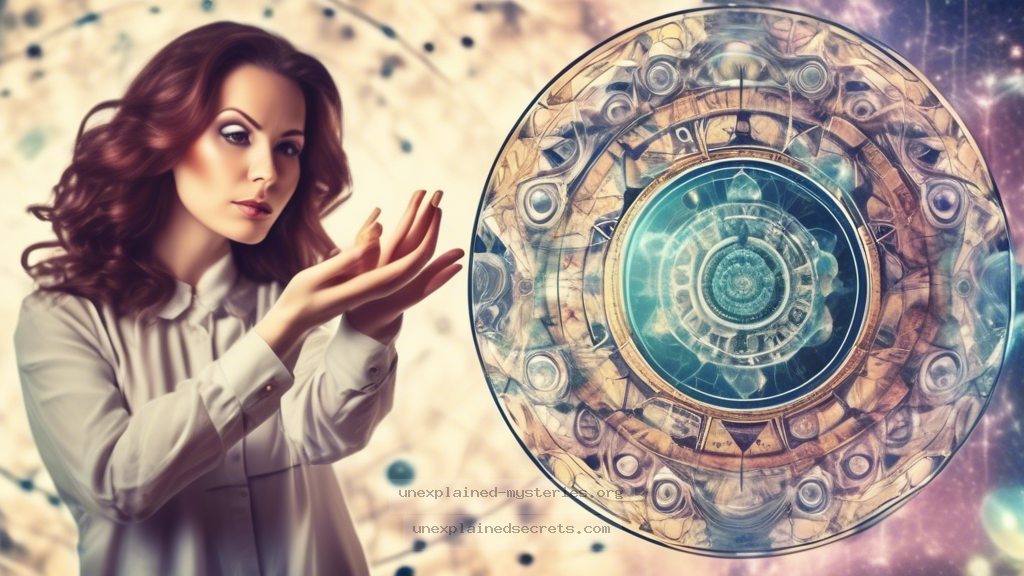Can Psychic Abilities Be Scientifically Proven Through Documented Cases?
Can Psychic Abilities Be Scientifically Proven Through Documented Cases?
The question of whether psychic abilities can be scientifically proven is a tantalizing one, captivating both skeptics and believers alike. Psychic phenomena, often categorized as extrasensory perception (ESP), include a range of abilities such as telepathy, clairvoyance, and precognition. This blog post delves into the complexities surrounding this enigmatic subject, exploring documented cases, scientific testing, and the implications of psychic abilities in our understanding of consciousness and reality.
Introduction to Psychic Abilities
Psychic abilities have been part of human culture for centuries, often viewed as mystical gifts or supernatural phenomena. From Nostradamus to modern-day psychics, these abilities intrigue individuals across various fields, from psychology to parapsychology. The ongoing debate over their existence raises questions about the nature of reality, consciousness, and the limits of human perception. As we explore the possibility of scientifically proving these abilities, we must first understand what constitutes psychic phenomena.
Historical Context of Psychic Research
The scientific study of psychic phenomena can be traced back to the late 19th and early 20th centuries, with the establishment of organizations like the Society for Psychical Research (SPR) in 1882. This organization aimed to investigate paranormal occurrences using rigorous scientific methods. Early researchers, such as William James and J.B. Rhine, conducted experiments on telepathy and clairvoyance, attempting to quantify these elusive abilities.
In the decades that followed, psychic research encountered skepticism and criticism, particularly from the scientific community, which often dismissed it as pseudoscience. However, interest in the subject has persisted, leading to various studies and experiments aimed at verifying psychic claims. Noteworthy examples include the Ganzfeld experiments, which sought to test telepathy under controlled conditions, and the work of parapsychologists like Dean Radin, who argues for the existence of psychic phenomena based on statistical analyses.
Core Concepts and Theories of Psychic Abilities
At the heart of the debate surrounding psychic abilities are several core concepts. These include:
- Extrasensory Perception (ESP): The ability to receive information through means other than the known senses.
- Telepathy: The supposed ability to communicate thoughts or feelings from one mind to another without using known senses.
- Clairvoyance: The ability to gain information about an object, person, location, or event through extrasensory means.
- Precognition: The claimed ability to perceive or predict future events before they occur.
These abilities challenge the conventional understanding of how we perceive and interact with the world. Theories explaining psychic phenomena often draw on quantum mechanics, consciousness studies, and the idea of interconnectedness in the universe, suggesting that human consciousness may extend beyond the physical brain.
Documented Cases of Psychic Abilities
Many documented cases of purported psychic abilities have emerged over the years. One notable example is the case of Uri Geller, an Israeli psychic who gained fame in the 1970s for his alleged telekinetic abilities, including bending spoons and performing other feats of mind over matter. Geller’s demonstrations were both lauded and criticized, leading to debates about the authenticity of his abilities.
Another intriguing case involves the work of Ingo Swann, a pioneer in the field of remote viewing. Swann participated in experiments conducted by the Stanford Research Institute in the 1970s, where he demonstrated the ability to describe remote locations without any prior knowledge. His results were statistically significant, leading to further exploration of remote viewing by various government agencies, including the CIA.
Scientific Testing and Evidence
Scientific testing of psychic phenomena has often employed experimental protocols designed to eliminate bias and enhance reliability. For instance, the Ganzfeld experiments, which involved placing a “sender” and “receiver” in separate rooms, aimed to test telepathy under controlled conditions. The results, while showing some statistically significant findings, have been met with skepticism due to methodological criticisms and challenges in replicability.
Modern advancements in technology have also contributed to psychic research. Techniques such as functional magnetic resonance imaging (fMRI) have been utilized to study brain activity during psychic tasks, although definitive conclusions remain elusive. The challenge lies in the difficulty of creating reproducible experiments that can consistently demonstrate psychic abilities under laboratory conditions.
Alternative Perspectives on Psychic Abilities
While many researchers advocate for the existence of psychic phenomena, alternative perspectives often challenge this notion. Skeptics argue that anecdotal evidence and personal testimonials cannot serve as reliable proof of psychic abilities. Psychological explanations, such as the placebo effect, confirmation bias, and the power of suggestion, are often proposed as reasons behind reported psychic experiences.
Moreover, some researchers posit that what is perceived as psychic ability may be rooted in advanced cognitive skills, such as heightened intuition, pattern recognition, and subconscious processing. These arguments emphasize the need for a critical and scientific approach to exploring claims of psychic phenomena, recognizing the potential for human psychology to produce remarkable insights without invoking the paranormal.
Common Misconceptions and Clarifications
Misconceptions about psychic abilities abound, often stemming from media portrayals and popular culture. One common misconception is that all psychics possess supernatural powers. In reality, psychic abilities may vary widely in degree and type. Additionally, many individuals who claim to have psychic abilities do not consistently demonstrate them under controlled conditions, leading to further skepticism.
Another misconception is that psychic abilities can be easily harnessed or developed by anyone. While some individuals may exhibit heightened intuitive capabilities, the notion that psychic skills can be taught or learned is contentious. Many proponents argue that psychic abilities are innate and cannot be cultivated in the same way one might learn a skill like playing an instrument.
Best Practices for Investigating Psychic Phenomena
For those interested in investigating psychic phenomena, several best practices can enhance the credibility and effectiveness of research efforts. These include:
- Controlled Experiments: Design rigorous experiments with clear protocols to minimize bias and maximize reproducibility.
- Peer Review: Subject findings to peer review to ensure that conclusions are critically evaluated by other experts in the field.
- Diverse Perspectives: Engage with both proponents and skeptics of psychic phenomena to foster a well-rounded understanding of the subject.
- Documentation: Maintain detailed records of experiments, methodologies, and results for transparency and reproducibility.
By adhering to these practices, researchers can contribute to a more comprehensive understanding of psychic phenomena and their implications for human consciousness.
Future Developments and Ongoing Research
The future of psychic research remains uncertain, yet promising developments are on the horizon. Advances in neuroscience, quantum physics, and consciousness studies may offer new insights into the nature of psychic phenomena. As technology continues to evolve, researchers are exploring innovative ways to measure and analyze psychic abilities, potentially leading to breakthroughs in our understanding of the mind and its capabilities.
Organizations like the Institute of Noetic Sciences and various academic institutions are actively pursuing research in this field, fostering collaboration between scientists and parapsychologists. The growing interest in consciousness exploration and interdisciplinary approaches to studying human experience may pave the way for a more accepted understanding of psychic abilities.
Conclusion
The question of whether psychic abilities can be scientifically proven remains open-ended, with compelling arguments on both sides of the debate. Documented cases and research efforts highlight the complexity of these phenomena, while skepticism and alternative explanations remind us of the need for rigorous investigation. As we continue to explore the boundaries of human consciousness, the possibility of psychic abilities invites us to reconsider our understanding of reality and our place within it.
Ultimately, the pursuit of knowledge about psychic phenomena is not just about proving or disproving their existence; it is about deepening our understanding of the human experience and the mysteries that lie beyond our current comprehension. 🌌
Other Articles
Recent Posts
- What Happened to Flight MH370? The Conspiracy Theories That Still Haunt Us
- What Secrets Lurk Within the Walls of the Infamous Trans-Allegheny Lunatic Asylum?
- What Evidence Supports the Existence of Bigfoot in the Pacific Northwest?
- What Happened to the Indus Valley Civilization? Unraveling the Mysteries of Ancient Urban Life
- Can Telepathy Be Scientifically Proven Through Laboratory Evidence?







